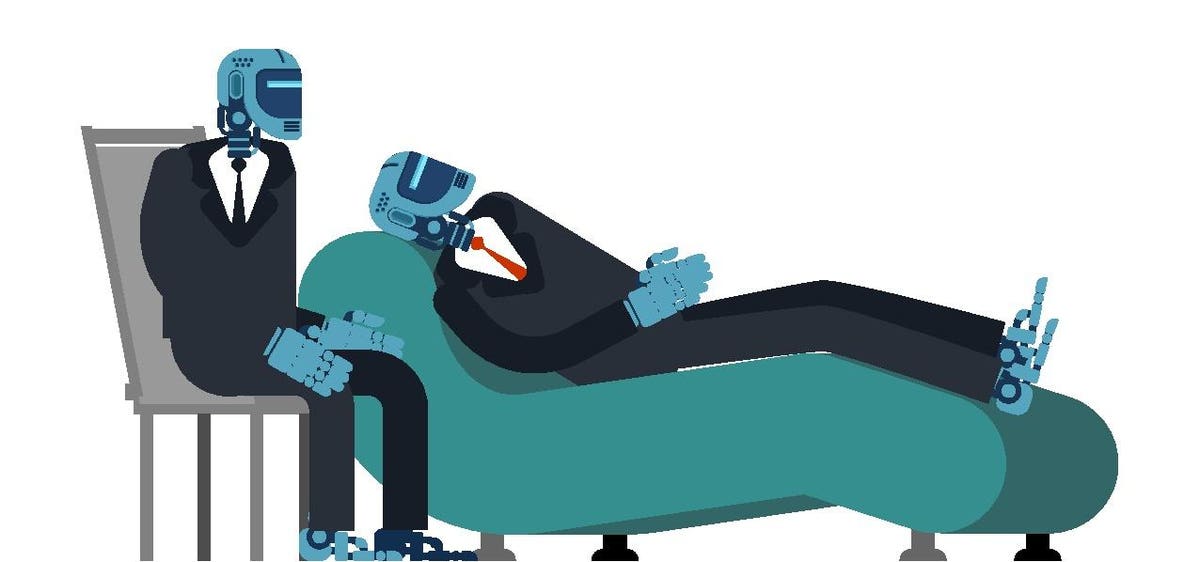Is psychology genuinely impervious to technological advancements, or is it standing on the cusp of a groundbreaking technological transformation? The convergence of technology and psychology has ushered in a realm of new possibilities, challenging conventional views on therapeutic interventions. Amidst the persistent accessibility issues plaguing conventional therapy, a pertinent inquiry emerges: Can artificial intelligence (AI) chatbots serve as a bridge to address the gaps in mental healthcare provision?
To address this query effectively, it is essential to delve into the obstacles surrounding traditional therapy, explore the potential of AI as a viable solution, and delicately weigh the nuanced question of whether AI can truly supplant the human connection offered by therapists.
The Accessibility Dilemma in Traditional Therapy
The hurdles in accessing traditional therapeutic services in the United States are multifaceted and underscored by a troubling decline in the number of community mental health centers. Research published in BMC Psychiatry reveals a 14% reduction in national community mental health centers between 2014 and 2017, coinciding with a 9.7% upsurge in suicide rates during the same period.
This downward trend raises critical concerns about the accessibility of mental healthcare. With the diminishing availability of mental health centers, individuals’ ability to seek timely and appropriate care diminishes significantly.
In addition to the scarcity of mental health professionals, other barriers exacerbating the inaccessibility of traditional therapy include financial constraints, the enduring stigma linked to seeking mental health assistance, and geographical limitations.
The repercussions of these barriers are profound, with untreated mental health issues leading to a myriad of adverse outcomes such as diminished overall well-being, strained relationships, and compromised professional and academic performance. The impact of these accessibility challenges transcends individual experiences to affect societal well-being at large.
By addressing the gaps in traditional therapy through innovative solutions like AI chatbots, there exists a potential to reverse the negative trends witnessed in the mental health domain. The intersection of technology and psychology emerges as a pivotal arena for reshaping the landscape of mental healthcare, offering hope to individuals currently underserved by conventional models.
AI as a Panacea for Mental Healthcare Barriers
AI emerges as a promising remedy to the accessibility challenges entrenched in traditional therapy. Chatbots harness machine learning and AI to emulate human-like interactions and provide task-oriented frameworks with evolving conversational capabilities.
This innovative approach heralds a paradigm shift in mental healthcare, presenting a potential avenue to surmount barriers such as time constraints, geographical distance, and therapist availability. Research highlighted in a study published in Academic Psychiatry underscores the efficacy of chatbots in delivering therapy for depression.
By integrating principles of cognitive-behavioral therapy, these AI-driven tools have shown efficacy in alleviating depression and anxiety over intervention periods. Particularly noteworthy is the chatbots’ capacity to offer round-the-clock support, unencumbered by the limitations of human schedules.
The implications of AI in mental healthcare extend beyond mere accessibility. The scalability of AI chatbots means that mental health support can reach individuals in remote or underserved areas, thereby mitigating geographical constraints. Furthermore, the data-driven insights gleaned by chatbots through user interactions and shared information hold the promise of enhancing the personalization of therapeutic interventions over time.
Nevertheless, it is imperative to approach the integration of AI therapy with caution. While AI presents a valuable solution to accessibility issues, it cannot entirely replicate the depth of understanding and empathetic connection provided by human therapists.
Striking a balance between the efficiency of AI and the human touch intrinsic to traditional therapy becomes paramount in crafting a comprehensive and efficacious mental healthcare ecosystem. As we navigate this evolving terrain, it is crucial to contemplate the ethical implications, ensuring that technology complements rather than supplants the human-centric facets of mental healthcare.
The Viability of AI in Replacing Human Therapists
The prospect of AI replacing human therapists hinges on a nuanced evaluation of when AI proves beneficial versus when the presence of a real clinician is indispensable. AI therapists could be instrumental in:
- Routine check-ins: Providing consistent support and monitoring mental health over time.
- Immediate assistance: Offering coping strategies or relaxation techniques during urgent situations.
- Accessible support: Enhancing accessibility in regions facing a scarcity of mental health professionals.
- Skill building: Facilitating skill-building exercises, such as cognitive-behavioral therapy techniques.
Conversely, real therapists should be engaged for:
- Complex mental health issues: Expertise and nuanced comprehension are imperative for severe conditions.
- Personalization: Tailoring the approach based on an individual’s unique background and experiences.
- Empathy and emotional connection: Offering a level of empathy that AI cannot wholly replicate.
- Crisis situations: Assessing and addressing severe circumstances or acute distress.
- Dynamic interactions: Adapting the approach based on dynamic cues during a session.
In certain scenarios, a blend of AI and human therapy may proffer a holistic approach, with AI tools furnishing ongoing support, monitoring, and skill-building, while real therapists handle intricate issues and provide the essential human touch for emotional well-being. The crux lies in considering individual requirements, the nature of the mental health concern, and the requisite level of support when deliberating between AI and human therapy.
In Conclusion
As we navigate the dynamic landscape of mental healthcare, the integration of AI into therapy presents a realm of potential benefits. It offers accessible and immediate support, yet the ultimate decision rests on individual needs. By comprehending the strengths and limitations of both AI and human therapists, individuals can make informed choices to bolster their mental well-being. For the curious souls, perhaps it is time to explore AI for guidance or simply as a conversational companion, taking a stride towards a future where technology and psychology harmoniously coexist.






